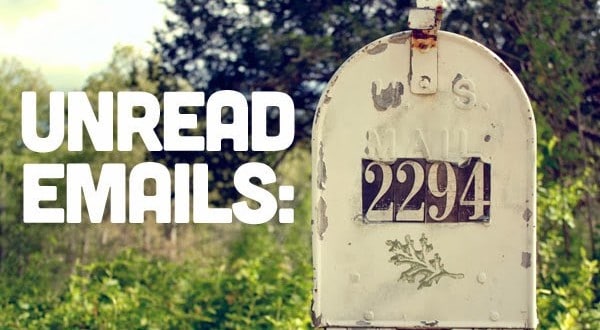The first habit of building trustworthy leadership is choosing to deliver. As one CEO I interviewed put it, ‘Trustworthiness is doing what it says on the tin’. One of the behaviours I discuss in ‘The Trusted Executive’ that is critical to developing a reputation for delivery is to make sure you have an effective system for the management and delegation of tasks. For most of us this starts with making sure we are proactively managing our inboxes rather than becoming victims of an insatiable and relentless email horde.
Now, I recently fell foul of my own advice in finding that I was being bullied by an email inbox that was never empty and contained a jumble of the important, the irrelevant, the urgent and the plain nonsensical. I was challenged by one of my fellow Vistage chairs to ‘get a grip’ and this jolted me into action. I vowed there and then to implement a better system of email management and, one month in, I am pleased to report this has been an overwhelming success that has transformed my daily routine. I share my system with you in the hope it may give you fresh ideas, motivation and confidence that there is light at the end of the email tunnel.
So what have I done? Let me break my changes down into the three simple steps:-
1.I have adopted the ‘2 minute rule’ from Dave Allen’s excellent ‘Getting Things Done’ book. In other words, if the email can be actioned within two minutes then it is actioned immediately. Bish, bash, bosh!
2.If an email cannot be actioned in two minutes it gets moved to one of the following four folders which are based on Steven Covey’s ‘important/urgent’ time management matrix:-
- Important and Urgent
- Important and Not Urgent
- Not important and Urgent
- Not Important and Not Urgent
3.Finally, I have set up a handful of rules in outlook that automatically divert emails into a handful of other folders, such as one for all LinkedIn emails and one for all Google news alerts.
Hey presto! As a result of these three simple steps my inbox is empty within 30 minutes of the start of each working day. The psychological relief of staring at an empty inbox is profound and strangely satisfying after years of fighting and losing the email battle. So what happens next? Having slayed the email monster, I calmly and proactively proceed with the following order of play:-
- Important & Urgent – these emails are actioned within the next 24 hours
- Important & Not Urgent – these emails are reviewed each week. I identify the emails that I am going to action that week and place these in a sub-folder called, imaginatively, ‘this week’.
- Not Important & Urgent – these emails are reviewed once per week when time allows.
- Not Important & Not Urgent – I leave these emails until I get a quiet day in the month and then I will scan them and respond as time allows.
One of my favourite quotes on time management comes from Vistage speaker, Mark Robb, who says ‘It is easy to say ‘No’ when you have a deeper ‘Yes”. In other words, it is easy to decide which emails are important or not important if you have a clear grasp of your purpose, your values and your goals. Simply having to make a decision about each email’s importance forces you to keep taking responsibility for what really matters in moving you forward to a fulfilling work life.
My experience of the past month has enhanced my habit of delivery through building another layer of sophistication into the prioritisation of my work. I’ve realised that my inbox is really my ‘to do’ list in disguise. Therefore, I need to use the same time management techniques with email as I do with tasks. In hindsight, this seems obvious, but unfortunately it has taken me ten years to make this productivity leap.
Maybe you are already an inbox ninja who deftly swipes emails to one side with a simple flick and glance, but just in case there is anyone else out there who still finds email a daily drain then this blog post is for you! May the force of my email rules be with you as you engage the dark side of the email habit.
‘Choosing to Deliver’ is habit No.1 in John’s new book, ‘The Trusted Executive: Nine leadership habits that inspire results, relationships and reputation’. Available to order now via Amazon UK
[ First posted on johnblakey.co.uk ]

